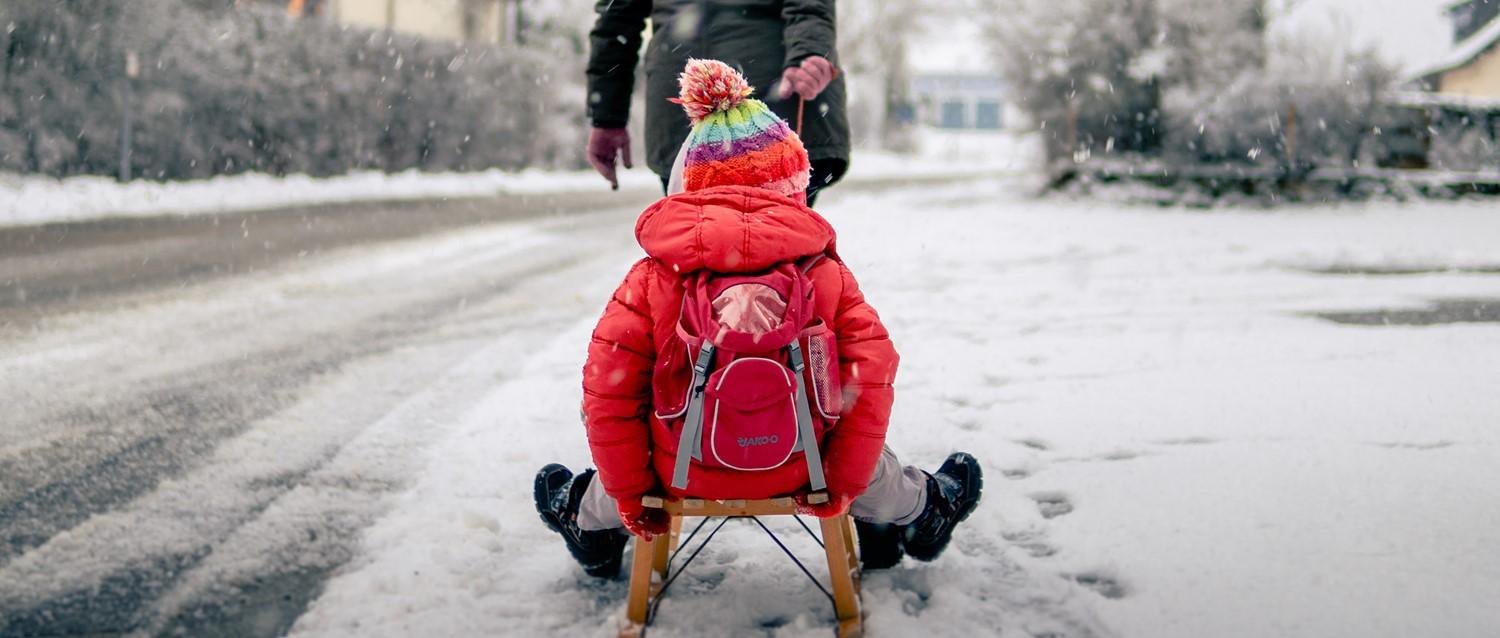
Why do some people get worse colds than others?
Peer reviewed by Dr Sarah Jarvis MBE, FRCGPLast updated by Julian TurnerLast updated 6 Dec 2018
Meets Patient’s editorial guidelines
- DownloadDownload
- Share
- Language
- Discussion
What is a 'common cold', why do some people seem to be more susceptible than others, and what practical steps can you take to protect yourself against infection this winter? We ask a cold expert and a paediatrician for their advice.
In this article:
Video picks for Viral infections
For something so ubiquitous, especially during the winter months, the common cold is notoriously difficult to define, even among medical experts.
On the one hand it can be identified as a set of recognisable symptoms - blocked and runny nose, sore throat - perhaps combined with some systemic indicators such as fever, particularly in children.
On the other hand, the common cold can also be defined in terms of infection caused by a range of respiratory viruses, of which the rhinovirus is the most widespread. Other viruses such as flu can also cause typical common cold symptoms.
"The term common cold is not a strict medical term," explains Dr Ron Eccles, Emeritus Professor at Cardiff University's School of Biosciences. "The majority of respiratory viral infections are described as subclinical - meaning without symptoms - so, for example, someone could have an infection caused by the rhinovirus, but they wouldn't know they had it.
"Similarly, when the influenza virus goes through the community, a lot of people are affected, yet they don't necessarily develop any symptoms.
"Personally, I define the common cold as what the general public considers to be grouping of those three or more recognisable symptoms, perhaps lasting for a period of seven days."
Continue reading below
Why are some people always under the weather?
Scientists are becoming increasingly aware of the influence of genetics in medicine in general - and in research into the common cold in particular.
Our genetic make-up determines our immune system and immune deficiencies are an important contributory factor in why some people contract more colds than others. A genetic weakness in the lungs, such as cystic fibrosis for example, can put people at risk if they just catch a common cold.
"There's a range of different genetic make-ups in the population and therefore all of our immune systems are quite different," says Eccles.
"That is why some people respond very strongly to common cold viruses and get severe symptoms, while others react so mildly they'll claim they've never had a cold in their life."
"If you've been exposed to a particular virus before, you may not develop any symptoms at all, because your immune system has been primed to fight off the infection. It's the same process that means you usually only catch chickenpox once.
"With common colds we generally don't have such a strong immune response and therefore we probably don't get lifelong immunity to a particular virus," he adds. "However, we may get a milder response if we are exposed to that virus again."
Age and lifestyle factors
Back to contentsThe good news is that, in addition to wisdom, age often comes with greater immunity, for the simple reason that we have been exposed to more viruses over our lifetime, which means less severe colds.
However, as we get older, our immune system inevitably slows down, and eventually we may start to suffer from more severe, and potentially serious, lower respiratory and chest infections.
In addition, both lack of sleep and disturbed sleep patterns can disrupt the immune system, making people more vulnerable to catching colds. Stress is another factor that can lower immunity and the body's ability to fight infection.
Finally, there's the good old British weather.
"I would argue that one of the key factors is that we tend to crowd together in cold weather and cold weather is linked to respiratory infections," says Eccles. "In addition, the air cools our noses and respiratory system, and slows down our immune response."
Continue reading below
The importance of vitamin D
Back to contentsA host of lifestyle factors - where and how we live, hygiene and nutrition, such as the intake of vitamin D - are also important when it comes to how vulnerable people, and particularly children, are to catching colds.
"Seventy years ago it was standard practice for parents to give children daily cod liver oil or some other form of vitamin D, but in the 1950s this started to go out of fashion and in the past 20 years we've seen a major increase in vitamin D deficiency," states Dr Benjamin Jacobs, consultant paediatrician at Elstree Waterfront Outpatients Centre, part of HCA UK.
"In the UK, we no longer fortify foods as much as they do in other countries; for example, in the US, most milk is fortified with vitamin D; in the UK it isn't."
In addition to a lack of vitamin supplements and food fortification, Jacobs identifies three other important factors.
"We have more people now in the UK with darker skin who require more sunshine for their skin to make vitamin D. Then, we have gone to great lengths to protect people from skin cancer, which of course is very important, but if you don't get some exposure to the sun you should take vitamin D by mouth.
"As important is the fact that UK women do not pass a sufficient amount of vitamin D to their babies through breast milk, so we should be giving those babies supplements."
Recent research into the common cold
Back to contentsA recent study at the University of Virginia School of Medicine in the US suggested that the amount of nasal bacteria (specifically staphylococcus and moraxella), as well as the amount of cold virus present in the body, may influence the type and severity of the cold symptoms people develop.
Jacobs is intrigued, but issues a note of caution.
"This is an interesting scientific study with good data, but it is always important to be clear about the difference between bacteria and viruses," he says. "The majority of the infections that we see in children during winter are viruses.
"There are other germs that cause infections, and staphylococcus and moraxella are two bacteria, which may require antibiotic treatment, but there is no evidence from this or any other study that giving antibiotics prevents colds or helps people with a cold or influenza.
"The study suggests that people could have more, or different, bacteria that may be linked with them getting more severe colds. The bacteria may be the cause or it could be that a third factor causes these people to get both the bacteria and the virus - we are a long way from finding out how this works."
Continue reading below
Prevention and treatment
Back to contentsWhat practical steps can people take to reduce their chances of getting a cold or alleviate the symptoms if they do contract one?
Hot drinks
"Most of the cough medicines that you can purchase are not very effective, but hot drinks that promote salivation and mucus secretions can be particularly good for a sore throat and cough," advises Eccles. "There’s also increasing evidence that sweet cough syrups are beneficial in actually inhibiting coughs."
Painkillers
"Painkillers such as paracetamol, aspirin and ibuprofen are effective at controlling fever, muscle aches and pains, headaches and sinus pain, but be careful to check the label before taking them."
Nasal sprays
"Rapid-acting nasal decongestant sprays can offer relief from congestion for up to ten hours and I would recommend taking them in the evening before going to bed, as I would a multi-symptom product that contains a painkiller, a decongestant and an antihistamine."
Patient picks for Viral infections

Infections
How to tell the differences between winter viruses in kids
During the winter months, it's very normal for children and adults to suffer from a bout of the common cold or influenza (flu). Children in particular tend to be more susceptible to infection and can often suffer from several viruses each year. Such viruses are easily spread through contact with others, and, while a nuisance, are usually nothing to worry about.
by Gillian Harvey

Infections
Why is there still stigma around HPV?
Most of the population will have HPV at some point, yet hardly any of us understand what it really is. And ongoing stigma, thanks to its ties to cancer and STIs, leaves people feeling worried and embarrassed following a diagnosis.
by Milly Evans
Continue reading below
Article history
The information on this page is peer reviewed by qualified clinicians.
6 Dec 2018 | Latest version

Ask, share, connect.
Browse discussions, ask questions, and share experiences across hundreds of health topics.

Feeling unwell?
Assess your symptoms online for free
Sign up to the Patient newsletter
Your weekly dose of clear, trustworthy health advice - written to help you feel informed, confident and in control.
By subscribing you accept our Privacy Policy. You can unsubscribe at any time. We never sell your data.